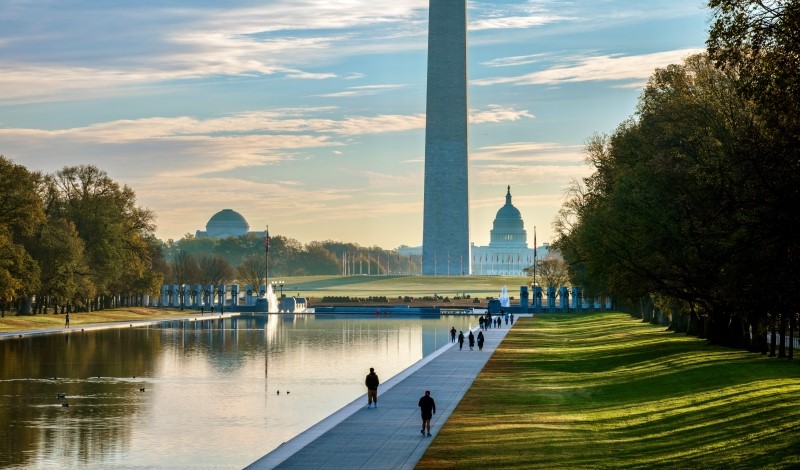
The Government Accountability Office discusses whether Congress should establish new offices to oversee agency rulemaking.
Law students learn in their administrative law courses that the U.S. Congress passes statutes calling on federal agencies to make rules. Agencies then use that authority to issue regulations on a host of issues—ranging from tariffs to data privacy, from health insurance to carbon emissions.
At that point, Congress’s job is mostly limited to holding hearings with cabinet officials and applying political pressure on agencies, students learn.
But the U.S. Government Accountability Office (GAO) recently discussed changes to this standard picture of legislation and regulation, in response to a request by members of Congress. Those members asked GAO to study options for enhancing Congress’s oversight of agency rulemaking. In its report, GAO analyzed whether Congress should establish two nonpartisan offices that would modernize lawmakers’ monitoring of federal regulation: a Congressional Office of Regulatory Review and a Congressional Office of Legal Counsel.
The executive branch, for its part, already has its own internal structures to oversee rulemaking—chief among them is the Office of Information and Regulatory Affairs (OIRA), GAO notes. Congress established OIRA, which sits in the White House Office of Management and Budget, in the Paperwork Reduction Act of 1980. Today, pursuant to a Clinton-era executive order, OIRA reviews significant proposed federal regulations, assesses their potential costs and benefits, and ensures that they avoid interfering with other agency actions.
Congress’s interest in reshaping its role in federal rulemaking is longstanding. Since 1999, lawmakers have introduced more than 60 bills addressing congressional oversight of the regulatory process.
In its report, GAO discusses whether Congress should create a legislative-branch analogue to the executive branch’s OIRA called the Congressional Office of Regulatory Review. This new entity would perform some of the same functions that OIRA performs, including analyzing proposed rules’ cost and benefits and studying regulatory burdens.
But Congress could also task its Office of Regulatory Review with additional functions, GAO observes. The new office could conduct periodic reviews of rules, measure regulatory compliance against industry standards, and offer its expertise to aid in congressional committee oversight of federal agencies.
GAO admits that such an office could duplicate some of OIRA’s work. But some of that duplication could be useful, GAO suggests. That is, the Congressional Office of Regulatory Review would “add a check on federal agencies’ regulatory activity,” GAO explains. And the new office could assume some of the functions of other congressional offices, including the Congressional Budget Office and GAO itself.
Moreover, Congress could ensure that the new office is nonpartisan. GAO points to the Joint Committee on Taxation as a model nonpartisan congressional body with bipartisan staff.
In its report, GAO also considers another dimension of regulatory oversight: Congress’s legal interpretation of federal legislation and regulation. Lawmakers and congressional committee staff often want advice on whether proposed statutes and rules comply with the Constitution and other federal law.
A Congressional Office of Legal Counsel could provide such advice through legal opinions, GAO explains. Just as a Congressional Office of Regulatory Review would serve as an analogue to OIRA, a Congressional Office of Legal Counsel would have its own executive-branch analogue: the U.S. Department of Justice’s Office of Legal Counsel (OLC).
OLC advises the President and federal agencies on complex issues of constitutional and administrative law. It also assesses proposed federal legislation and regulation.
GAO explains that Congressional Office of Legal Counsel would advise lawmakers on similar issues, including, for example, whether an international agreement should have been submitted to the U.S. Senate, or whether a federal official properly asserted executive privilege.
But when the Senate previously considered establishing a Congressional Office of Legal Counsel in the 1970s, one Senator cautioned that such an office’s legal opinions on a proposed statute could become the “authoritative source for interpretation of legislative intent.” The office’s interpretation could thus cabin—or, at the very least, influence—judicial review of the statute.
Still, beyond just issuing legal interpretations, a Congressional Office of Legal Counsel would also perform several “litigation-related functions,” GAO explains. For example, the office could represent Congress—or specific committees, officers, or agencies—in federal court proceedings. But these litigation-related functions could interfere with structures already in place in the executive branch, GAO warns.
Namely, the Justice Department already assumes responsibility for defending federal policies in court. Critics of establishing a Congressional Office of Legal Counsel argue that such an office could encroach on the President’s constitutional responsibility to “take care that the laws be faithfully executed” if the office intervenes in the Justice Department’s representation of the executive branch.
But proponents argue that a distinct congressional counsel’s office would be useful when courts have to consider inter-branch disputes. Indeed, GAO emphasizes that conflicts of interest between Congress and the executive branch do sometimes arise.
For instance, during the George H.W. Bush Administration, the Justice Department opted not to defend a federal telecommunications law in the U.S. Court of Appeals for the D.C. Circuit—after Congress overrode the President’s veto to enact the law. GAO suggests that a Congressional Office of Legal Counsel could have represented lawmakers’ interests in arguing in favor of that law when businesses challenged it in court. The U.S. Supreme Court ultimately vacated the D.C. Circuit’s decision to uphold the law.
Congress has a stake in what the executive branch does with its statutorily prescribed activities. And if lawmakers establish these new offices, Congress could play a more active role in federal regulation, GAO concludes.



